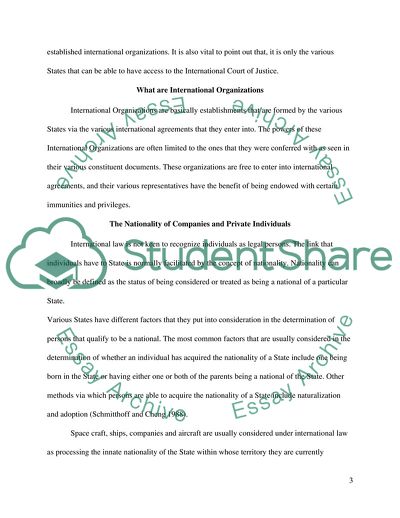Cite this document
(Critically assess the different sources of international law. To what Essay, n.d.)
Critically assess the different sources of international law. To what Essay. Retrieved from https://studentshare.org/law/1783368-critically-assess-the-different-sources-of-international-law-to-what-extent-have-international-treaties-affected-the-development-of-international-business-law
Critically assess the different sources of international law. To what Essay. Retrieved from https://studentshare.org/law/1783368-critically-assess-the-different-sources-of-international-law-to-what-extent-have-international-treaties-affected-the-development-of-international-business-law
(Critically Assess the Different Sources of International Law. To What Essay)
Critically Assess the Different Sources of International Law. To What Essay. https://studentshare.org/law/1783368-critically-assess-the-different-sources-of-international-law-to-what-extent-have-international-treaties-affected-the-development-of-international-business-law.
Critically Assess the Different Sources of International Law. To What Essay. https://studentshare.org/law/1783368-critically-assess-the-different-sources-of-international-law-to-what-extent-have-international-treaties-affected-the-development-of-international-business-law.
“Critically Assess the Different Sources of International Law. To What Essay”. https://studentshare.org/law/1783368-critically-assess-the-different-sources-of-international-law-to-what-extent-have-international-treaties-affected-the-development-of-international-business-law.


